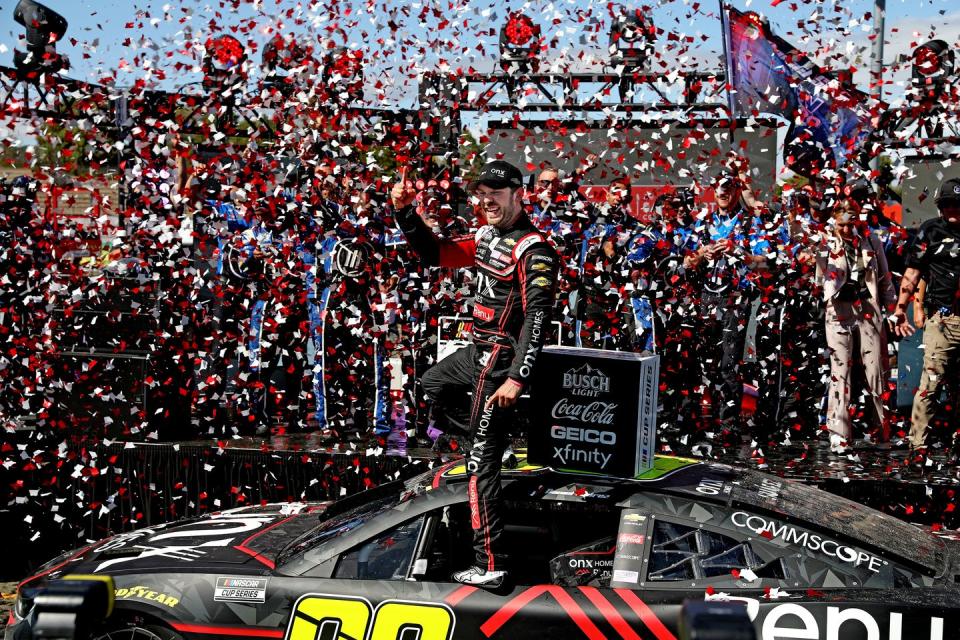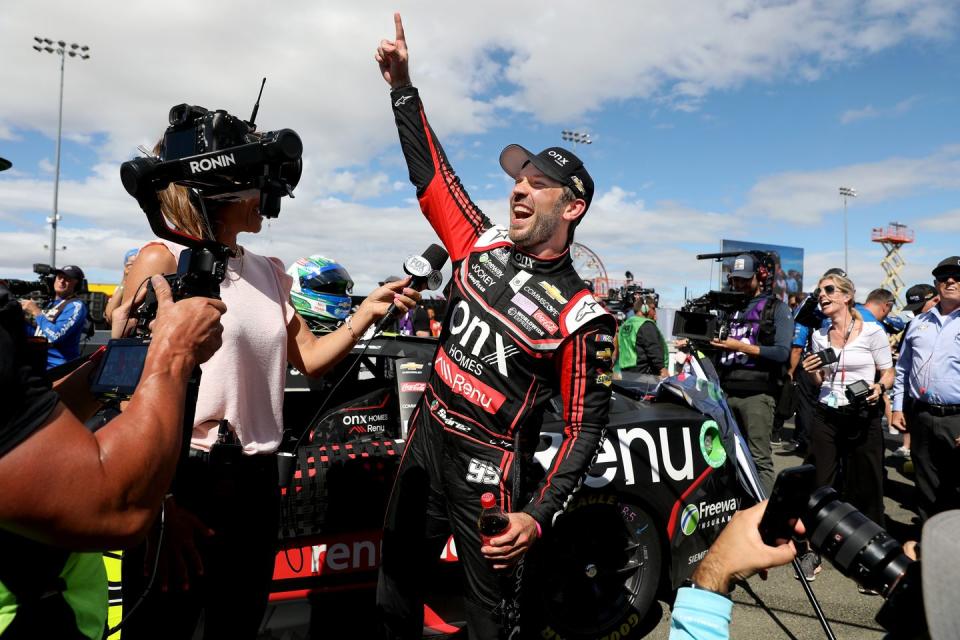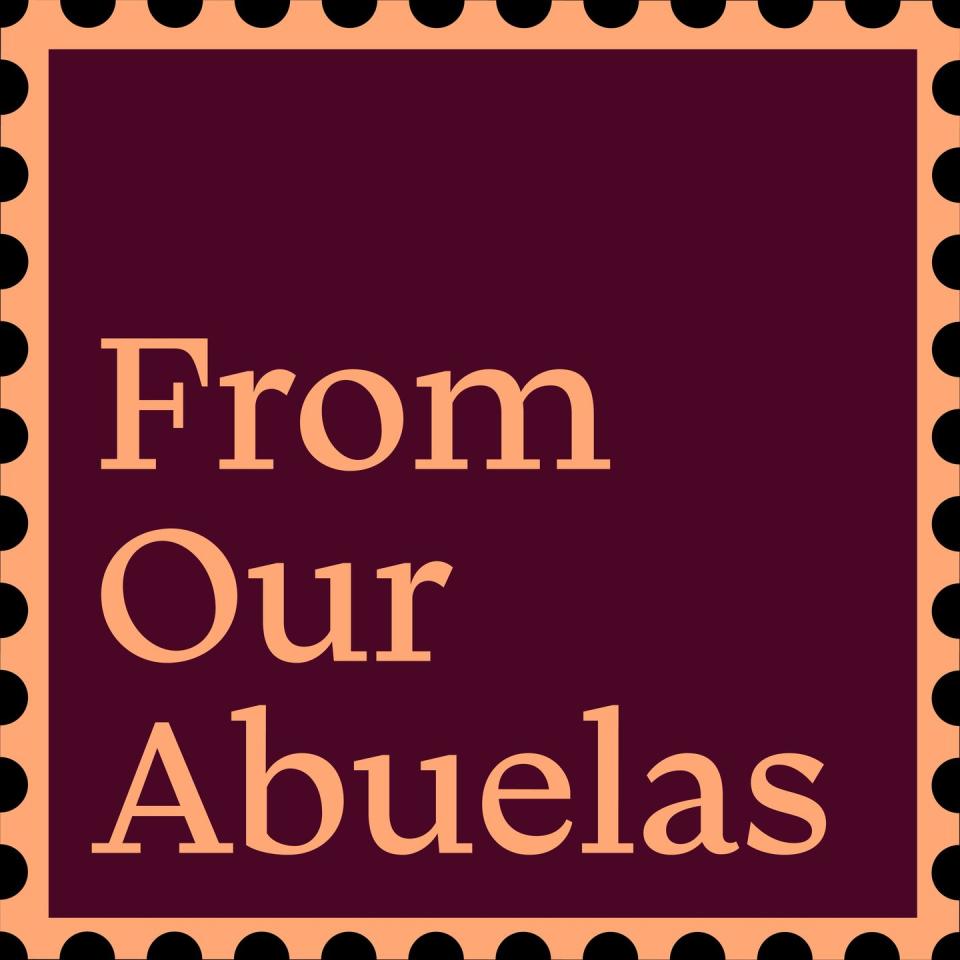Family Stands Highest at the Podium for Daniel Suárez


When Daniel Suárez finished first at Sonoma Raceway on June 12, he became the first and only Mexican-born driver to win a NASCAR Cup race. Most memorably for me, as a Mexican-American who grew up on the U.S.-Mexico border — not far from Daniel’s hometown of Monterrey, Nuevo León — it was also the first time a NASCAR Cup winner celebrated in Spanish saying, “Nunca te rindas en tus sueños.” Never give up on your dreams.
It was a rare moment in the history of NASCAR in the U.S.A.
I can’t think of anything in motorsport more American than stock-car racing. And yet NASCAR has such a strong following in Mexico, that the country has its own series running on 12 tracks throughout the Republica, as the country is known to its native-born.

NASCAR actually managed to export the excitement of the grid to Mexico, where the blur of bright liveries and deafening sound of cars rounding the oval are set against the backdrop of Mexico City or the Sierra Madre mountains in Monterrey, just to name a couple.
But NASCAR’s cultural exchange goes both ways. Some of the best drivers from NASCAR Mexico have gone on to compete in the U.S., and now one of these drivers has gone on to become among the best at NASCAR, regardless of country.
I wanted to hear more from Daniel, and talk about what it was like to stand in a grid of drivers for whom the N in NASCAR refers to a different nation altogether. I wanted to talk family and comfort food from home. And I wanted to ask him what it was like to not only compete on that U.S. grid, but win, too.
Jose: Family is big in Latin America. It may be trite, but the association persists with good reason: we’re a tightly-night people. What influence did your parents have on your career?
Daniel: They’re behind it all. If it weren’t for them, I wouldn’t be here. Of course, they gave me much support. I think when you’re a kid, you can’t really make your own decisions. Everything is based on what your parents do for you, and I think all professional drivers have to give their family credit because we start at a very early age.If it wasn’t for our families, we wouldn’t have got that start. So, family is an important part of us becoming professional drivers.
Jose: Were they the ones who pushed you to be a driver ever since you were a kid?
Daniel: Well, not just to be a driver, but simply to become whoever I wanted to be by supporting my decisions.. They didn’t want me to become a driver, specifically. They just had my back regardless of what I wanted to be.

Jose: What about your grandparents, your abuelos?
Daniel: Likewise. Them, too. In fact, they gave as much support as possible early on. It was actually my grandpa who taught me to drive when I was very young. And then, when I moved to the U.S. and started growing and learning more and more about motorsport in the U.S., I also got to know many new people. Somewhere among them, I met someone who was just a friend in the beginning, then became my grandpa, then became my business manager and is now my grandpa/manager/family, and a bit of everything in between. He helped me so much throughout my life here in America. If it weren’t for him, I’d hardly be where I am. He’s been like my father through it all in the U.S., guiding me and so forth. My dad’s back in Mexico, obviously, so he doesn’t have as much experience with life in America. Whenever I had to make important decisions in the U.S., I couldn’t go to my dad, simply because he couldn’t give me that kind of advice. Gustavo Arenas was who I leaned on for support from the beginning to the present day.
Jose: Life in either country is so different. My parents are from Mexico, too, whereas I’m from the U.S., and you’re right. It’s a huge change of pace. Life has a different rhythm. When you do go back to Monterrey, do you tend to do any driving?
Daniel: Definitely. Definitely. Unfortunately, I don’t have time to visit often but whenever I get the chance to go back and drive, I do. I go karting a lot, basically, as part of my training but it’s still very fun.
Jose: Speaking of going back, or taking it back to family, do you have any memories of your grandmother’s influence since they’re the matriarchs in our culture?
Daniel: Yes, of course. I’m very lucky to still have both my grandmothers around. Obviously, they provide more emotional support. Maybe less support as far as competition, or not much in that sense. But even if they don’t entirely follow what’s happening there, their love and support is the greatest of all. Same goes for my mom.

Jose: Oh, of course. For example, my grandma and mom never learned to drive. But, I feel they’re in my car when I drive past a bakery in Texas, because I remember the pan dulce they gave me as a kid. Grandmothers are everything, roots whence we bloom. At least for us, Mexicans. Even though your abuelas couldn’t give you technical advice, what did they teach you that’s helped during your career?
Daniel: Many things. It’s hard to speak to just one experience, but, frankly just overall I’m so lucky to have a great, big family. Starting with my mom and dad, grandpas, grandmas, sisters. I really believe that to compete at this level, you need a big team around you and family. The sacrifices that have to be made are just too great. A lot of people don’t see it, but there’s so much sacrifice to compete at this level.
Jose: Many people who follow the sport are on the outside looking in, maybe? Or, see it only at arm’s length, I suppose.
Daniel: Exactly.
Jose: When you started racing at NASCAR in the U.S., did you feel like an outsider among your fellow competitors?
Daniel: Yes, always. Obviously, I always felt I was a driver who was…different. A driver with a different past, and different experiences. In the beginning, I thought that would put me at a disadvantage. And maybe it was first. But as time went on, I came to realize I was at a disadvantage because of how I first learned to race, but being the only Mexican driver in NASCAR actually gave me an advantage. Then I started to see things a little differently, and things started to go well.

Jose: Did you have to change the perspective of yourself to see that advantage?
Daniel: Well, no. I didn’t really change my perspective. I simply learned new things. It was all part of a process, and that was some part of it. I don’t really think it was about perspective. It was just learning the process. Learning to drive, learning I was the only Mexican, and that it was about helping push Latinos ahead, and I went from there.

Jose: Give me an example of what you learned as you went on, being someone who came from Mexico. The things that you, maybe, didn’t know but picked up in the U.S.
Daniel: There’s so many things—the language, the culture. But also many things about competition. The way of competing was very, very different than anything I’d gone through in Mexico.
Jose: Were drivers in the U.S. more aggressive?
Daniel: Not necessarily aggressive. It’s just a different style. The tracks are different; the cars are different. The racing style is very different, and I had to learn all of that.
Jose: What was the most unexpected thing that you realized you had in common with drivers in the U.S.?

Daniel: Well, I think I naturally fit in because of my competitive side. In reality, that doesn’t change wherever you go. But I think my competitive side is what really made me similar, even at the start.
Jose: Do you carry a bit of home with you when you travel for races? Any Mexican chili candy, or potato chips? Sabritas?
Daniel: I’d love to, yes. (laughs) But, unfortunately, no, because I can’t eat that kind of food on the weekend. Every once in a while, maybe. Not weekends, for the sake of being as clean and healthy as possible.
Jose: Yeah. It seems people don’t recognize that drivers are athletes. Whether it’s at MotoGP, Formula 1, NASCAR, whatever. It takes a toll on the body and on your health.
Daniel: Too great a toll. I think people who don’t follow racing don't understand the exhaustion or fatigue we go through, which is understandable because there’s a big difference between motorsport and any other sport. You can play most sports at the park or practically anywhere. Unfortunately, motorsport requires too many things to practice. And sadly, not a lot of people get the opportunity to have these kinds of experiences.
Jose: Right. People see motorsport and think of cars, but they overlook the drivers who, at the end of the day, are like the heart or a major organ of the machine.

Jose: You have many victories as an athlete and driver at this high level, but what’s been your greatest victory as a son and grandson? What is winning for you in that sense?
Daniel: All the victories have been special, but I think winning my family’s support was the most important. I think all the sacrifices my family made were important. I really believe that if you don’t have a good relationship with your family, then everything else feels fleeting. I’ve had the good fortune of a family I can depend on. That we’re alive and well. Together, we still do what we love on weekends, which is to go racing. And go try to win, try to succeed. But simply having a loving family, having health and having fun together, we’re already winning.

This story was created as part of From Our Abuelas in partnership with Lexus. From Our Abuelas is a series running across Hearst Magazines to honor and preserve generations of wisdom within Latinx and Hispanic communities. Go to oprahdaily.com/fromourabuelas for the complete portfolio.
You Might Also Like

 Yahoo Autos
Yahoo Autos 